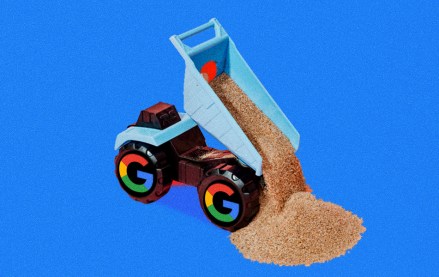Surfacing information is the future of mobile personalization, says Google

The face of personalization on mobile is changing. Surfacing information to the user, rather than having the user search for it, is the next step in the evolution of mobile personalization, says Ian Carrington, EMEA managing director for Google’s performance solutions.
Personalization was one of three big consumer shifts that Carrington described to Beet.TV at the Mobile World Congress, but its evolution as a marketing tactic has been limited.
This information might take the form of appointments, meetings, photos, all surfaced to the home screen without the user demonstrating interest via search. This information might not even be based on email or calendar events, says Carrington. The future of personalization will put the onus on Google to decide which information is relevant and which is not, hopefully without spooking users in the process. Carrington uses the example of his mobile device sending him a reminder about a football game, without any emails for Google to draw from. This example glosses over the fact that this information would be gleaned by geolocation.
This is a great boon for advertisers. The mobile phone is the medium for many of our daily tasks and interactions, so taking personalization beyond apps and into assistance by surfacing relevant information without the user asking for it meets a new consumer need and most important of all, further embeds the mobile device into our lives.
Google’s precarious position in Europe, from antitrust allegations to the “right to be forgotten” ruling, should make European advertisers wonder how effective this surfacing approach will be in the long run. But Carrington is optimistic that this is an opportunity for advertisers, not a roadblock waiting to happen.
More from Digiday

Publishers revamp their newsletter offerings to engage audiences amid threat of AI and declining referral traffic
Publishers like Axios, Eater, the Guardian, theSkimm and Snopes are either growing or revamping their newsletter offerings to engage audiences as a wave of generative AI advancements increases the need for original content and referral traffic declines push publishers to find alternative ways to reach readers.

WTF is the CMA — the Competition and Markets Authority
Why does the CMA’s opinion on Google’s Privacy Sandbox matter so much? Stick around to uncover why.

Marketing Briefing: How the ‘proliferation of boycotting’ has marketers working understand the real harm of brand blockades
While the reasons for the boycotts vary, there’s a recognition among marketers now that a brand boycott could happen regardless of their efforts – and for reasons outside of marketing and advertising – that will need to be dealt with.





